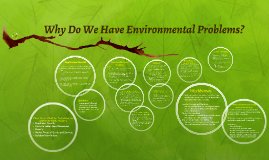Why do we have environmental Problems?
Science has a central role in shaping what count as environmental problems. This has been evident most recently in the success of planetary science and environmental activism in stimulating awareness and discussion of global environmental problems. We advance three propositions about the special relationship between environmental science and politics: (1) in the formulation of science, not just in its application, certain courses of action are facilitated over others; (2) in global environmental discourse, moral and technocratic views of social action have been privileged; and (3) global environmental change, as science and movement ideology, is vulnerable to deconstructive pressures. These stem from different nations and differentiated social groups within nations having different interests in causing and alleviating environmental problems. We develop these propositions through a reconstruction of The Limits to Growth study of the early 1970s, make extensions to current studies of the human/social impacts of climate change, and review current sources of opposition to global and political formulations of environmental issues.





